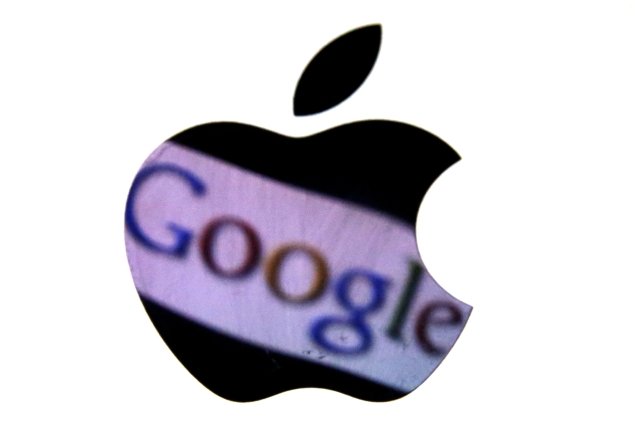
Apple's lawsuit against Google's Motorola Mobility unit over alleged patent abuse was thrown out on Monday just hours before trial, a setback for the iPhone maker in its efforts to gain leverage in the smartphone patent wars.
The two rivals were set to square off in a Madison, Wisconsin federal court over the library of patents Google Inc acquired along with Motorola for $12.5 billion in May. Apple Inc claimed Motorola's licensing practices were unfair.
However, late last week District Judge Barbara Crabb questioned whether she had the legal authority to hear Apple's claims, and on Monday she dismissed the case.
A Google spokeswoman said the company was pleased with the order, while an Apple representative declined to comment. In a legal brief filed after Crabb's ruling, Apple contended that the judge does indeed have the authority to hear its claims.
Lea Shaver, an intellectual property professor at Indiana University School of Law, said a ruling against Google would have diminished Motorola's patents as an effective bargaining chip in settlement negotiations.
"This puts Apple back into the position it was before," Shaver said.
Apple and Microsoft Corp have been litigating in courts around the world against Google and partners like Samsung Electronics Co Ltd, which use the Android operating system on their mobile devices.
Apple contends that Android is basically a copy of its iOS smartphone software, and Microsoft holds patents that it contends cover a number of Android features. Microsoft is set for a trial against Motorola in Seattle next week in a case with similar issues as the Apple matter in Wisconsin.
Apple and Microsoft accuse Google of demanding too high a royalty for some of its so-called standard essential patents. Motorola promised to license those patents on fair terms, they argue, in exchange for Motorola technology being adopted as an industry standard.
In Wisconsin, Crabb had ruled during the run-up to trial that she might decide what a fair royalty for Motorola's patents should be.
However, in a court filing last week, Apple argued that it would not consider itself bound by Crabb's rate if it exceeded $1 per Apple phone.
Given Apple's position, Crabb questioned whether she had the power to issue merely an advisory opinion. "It has become clear that Apple's interest in a license is qualified," Crabb wrote on Friday.
Microsoft, by contrast, has agreed to live with whatever terms U.S. District Judge James Robart sets at the Seattle trial.
In Wisconsin, the trial was scheduled to begin Monday afternoon in Madison, but Crabb dismissed the case during a morning hearing. If Apple cannot convince Crabb to reconsider, then the matter could be appealed.
In its statement, Google said Motorola has long offered licensing at reasonable rates. "We remain interested in reaching an agreement with Apple," the company said.
The case in U.S. District Court, Western District of Wisconsin is Apple Inc. v. Motorola Mobility Inc., No. 11-cv-178.

No comments:
Post a Comment